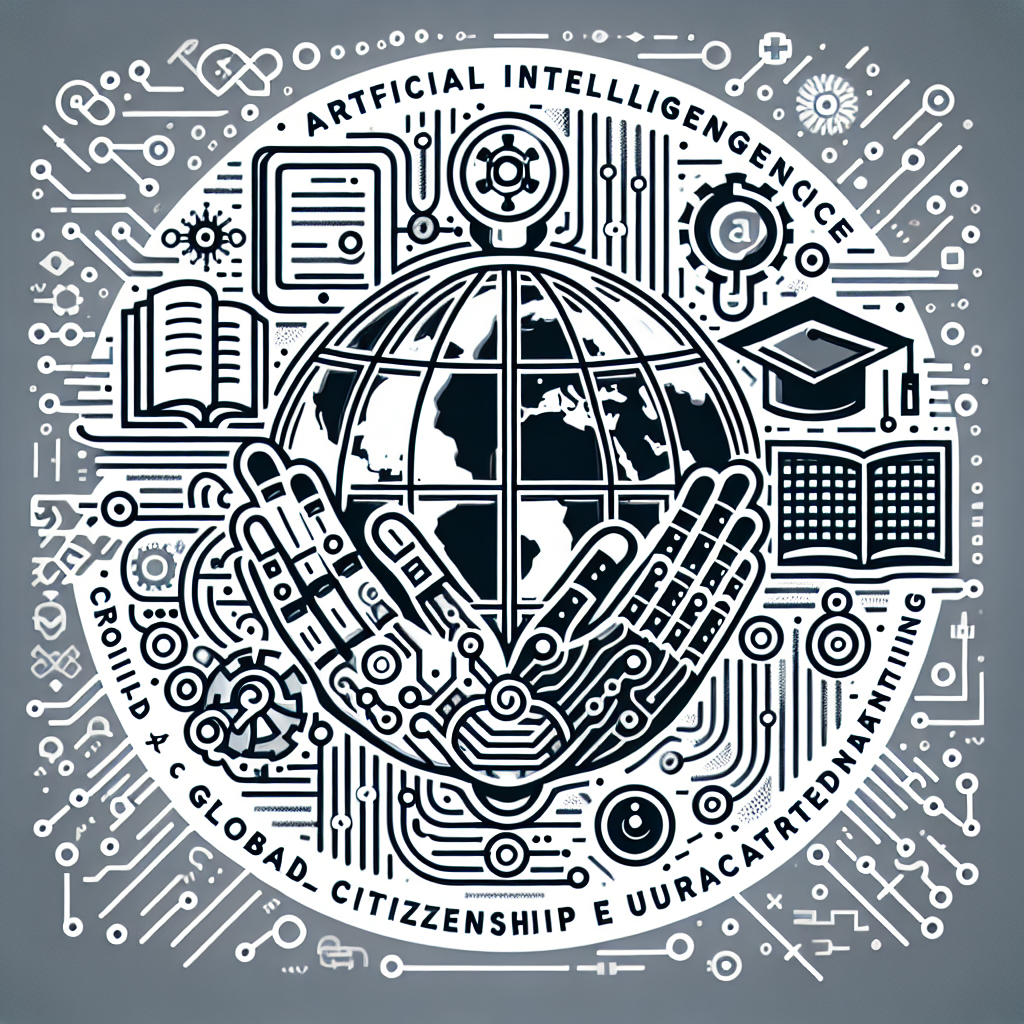In an increasingly interconnected world, the need for global citizenship education has become more pressing than ever. As technology continues to advance at a rapid pace, it is important for individuals to develop a deep understanding of different cultures and perspectives in order to navigate the complexities of our global society. Artificial intelligence (AI) has the potential to play a key role in promoting cross-cultural understanding and fostering global citizenship education.
AI has the ability to facilitate communication and collaboration across different cultures and languages. Through machine learning algorithms, AI can help individuals overcome language barriers and communicate effectively with people from diverse backgrounds. This technology can be used to translate text, speech, and images in real time, allowing for more seamless interactions between people who speak different languages.
In addition to facilitating communication, AI can also help individuals gain a better understanding of different cultures through the use of virtual reality (VR) and augmented reality (AR) technologies. These immersive technologies can transport individuals to different parts of the world, allowing them to experience different cultures firsthand. By providing a more immersive and interactive learning experience, AI can help individuals develop a deep appreciation for cultural diversity and promote cross-cultural understanding.
Furthermore, AI can also be used to personalize learning experiences and tailor educational content to individual students’ needs and preferences. By analyzing students’ learning styles, interests, and cultural backgrounds, AI can create customized learning experiences that cater to their unique needs. This personalized approach to education can help students develop a more nuanced understanding of different cultures and perspectives, and foster empathy and respect for diversity.
One of the key benefits of using AI in global citizenship education is its ability to scale educational initiatives and reach a wider audience. Through online platforms and mobile apps, AI can deliver educational content to individuals around the world, regardless of their geographic location or socioeconomic status. This democratization of education can help bridge the digital divide and ensure that all individuals have access to high-quality global citizenship education.
Despite the potential benefits of using AI in global citizenship education, there are also some challenges and concerns that need to be addressed. One of the main concerns is the potential for bias in AI algorithms, which can perpetuate stereotypes and reinforce cultural biases. It is important for developers to ensure that AI algorithms are designed in a way that promotes diversity and inclusivity, and that they are regularly audited and monitored for bias.
Another challenge is the potential for AI to replace human interaction and diminish the importance of face-to-face communication in fostering cross-cultural understanding. While AI can facilitate communication and collaboration across different cultures, it is important for individuals to also engage in meaningful interactions with people from diverse backgrounds in order to develop empathy and respect for cultural diversity.
Overall, AI has the potential to play a transformative role in promoting cross-cultural understanding and fostering global citizenship education. By harnessing the power of AI to facilitate communication, personalize learning experiences, and reach a wider audience, we can empower individuals to become responsible global citizens who are equipped to navigate the complexities of our interconnected world.
FAQs:
Q: How can AI help promote cross-cultural understanding in global citizenship education?
A: AI can facilitate communication and collaboration across different cultures, personalize learning experiences, and reach a wider audience with educational content.
Q: What are some of the challenges of using AI in global citizenship education?
A: Some challenges include the potential for bias in AI algorithms, the risk of diminishing face-to-face communication, and the need to ensure that AI promotes diversity and inclusivity.
Q: How can developers ensure that AI algorithms are not biased?
A: Developers can ensure that AI algorithms are designed in a way that promotes diversity and inclusivity, and that they are regularly audited and monitored for bias.
Q: What role can VR and AR technologies play in promoting cross-cultural understanding?
A: VR and AR technologies can transport individuals to different parts of the world, allowing them to experience different cultures firsthand and develop a deeper appreciation for cultural diversity.

